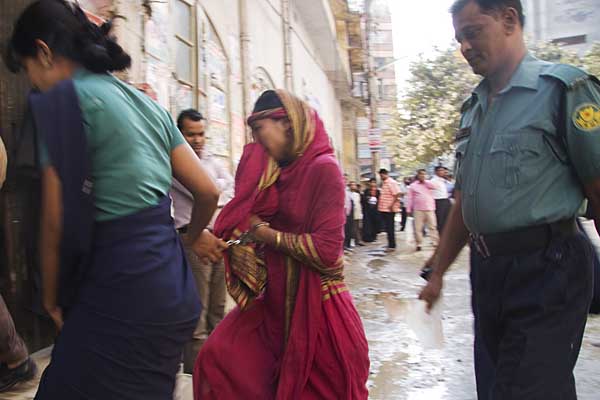Subscribe to ShahidulNews
By Rahnuma Ahmed
When southern countries host international events, it has become de rigeur to punish poor people and beggars.
The Delhi government cleared the capital of beggars, particularly areas tourists were likely to visit during the Commonwealth Games (September 2010). The South African government displaced its poor black residents living near stadiums to shanty towns, `tin-can towns’ during the FIFA World Cup Finals (June 2010).

The Bangladesh government too, in preparation for the ICC Cricket World Cup (February 2011), has decided to clear beggars and hawkers from major streets of Dhaka city. Banishing beggars is obviously easier than taking policy measures which will tackle the problems of poverty and immiseration. But, as the investigative journalism by Taslima Akhter reveals, what is happening in reality belies what the home minister Shara Khatun had told the press, ?We may take the street beggars to the social welfare ministry?s shelters for the time being.?
Women are are being arrested for begging. Shirin Ara, who was arrested from Mohammadpur, eked out a meagre living from alms-seeking. She was arrested by thana police on February 11, 2011 and produced in CMM court the next day. Shirin said she did not know why she had been arrested, nor had she been informed by the police about her alleged offence.
According to Section 81, begging is an offence, but Shirin was brought to court and taken away later, while in handcuffs, which is a violation of Police Regulations of Bengal 1943. According to Regulation 330 (a): “In no case, shall women be handcuffed nor shall restrain be used to those who either by age or by infirmity are easily and securely kept in custody.”

2 thoughts on “Police break the law, all in the name of international cricket!”